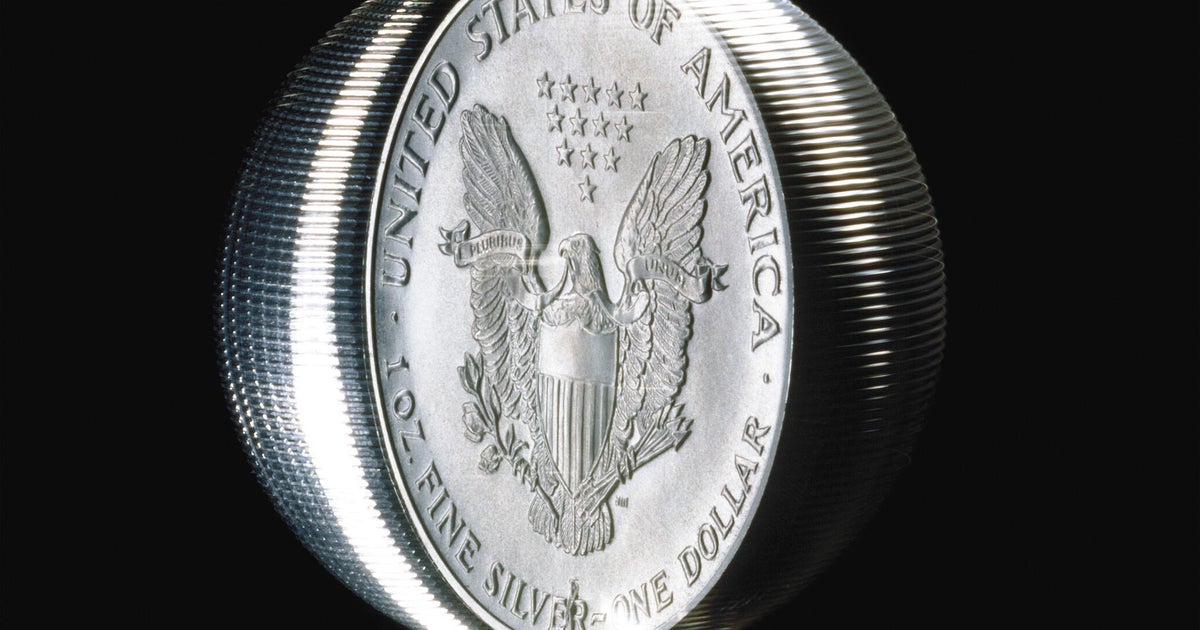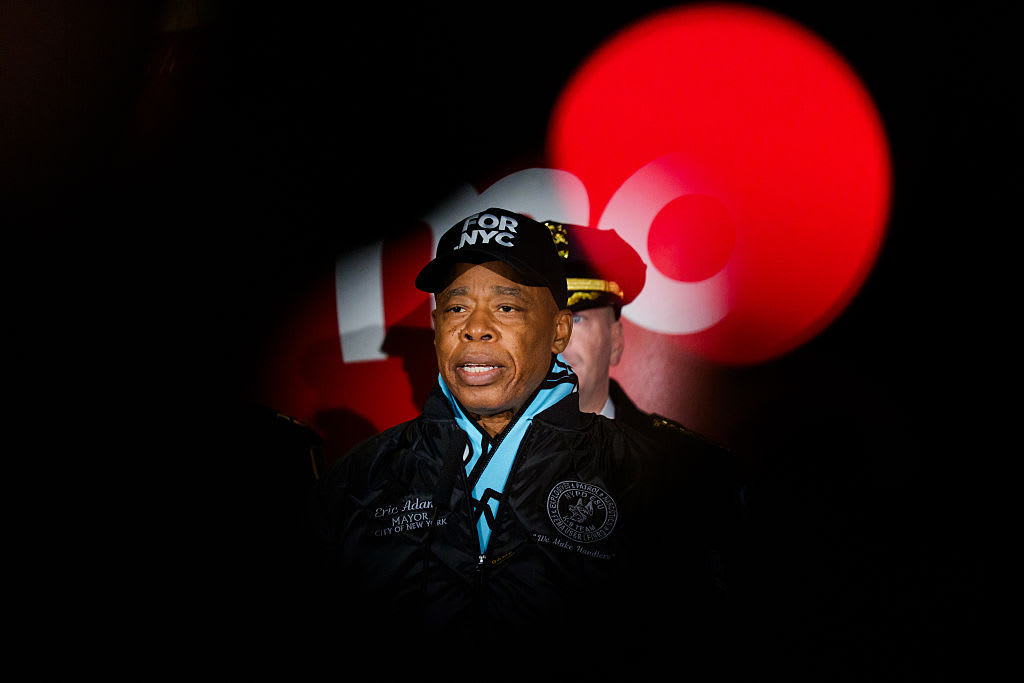Why Facebook is launching its own currency
- Facebook's entry into the digital currency space is seen as a huge vote of confidence in a technology that remains niche and poorly understood.
- Creating its own payment system will help the company—which makes 99% of its revenue from ads—develop different profit streams.
- Purchasing data could also add to Facebook's ability to target users through ads or via other methods.
- The project is likely to face intense scrutiny from regulators and politicians, many of whom say the company is already too big and too powerful.
Facebook, the social network that's everywhere you want to be and even many places you don't, on Tuesday announced the company's latest area of focus -- the world of cryptocurrency. The world's biggest social media company released details on Libra, a virtual currency set to be released next year.
The project includes nearly 30 corporate partners, among them heavyweights such as Visa, PayPal, eBay and venture capital firm Andreessen Horowitz, which are each contributing $10 million to help get the payment system off the ground. More broadly, the move amounts to an enormous vote of confidence for cryptocurrencies, and offers a hint of where Facebook's business strategy is headed.
Here are three ways Facebook could benefit from having its own cryptocurrency:
New revenue streams
Facebook makes nearly all its money from advertising, but the company has for some time been trying to diversify its income streams. One of the options it's considering is the highly profitable area of financial transactions. Messenger got a payments option five years ago, and Instagram has been gradually adding e-commerce features—for instance, allowing users to buy a product they see directly from the app.
"I think where the world's going is all these companies have to move away from advertising revenue," said Laura Martin, an analyst at Needham.
Having a branded currency is likely to make Facebook's users more "spendy," particularly if the money comes with a fanciful name like "Libra" or "GlobalCoin." Research has shown that the farther away a form of payment is from cash in one's wallet, the more money it makes people spend. Add in the seamlessness of a one-click payment system within the app, and the potential profits are significant.
Already, Facebook has been accused of making it far too easy to spend money. A group of parents are suing the company, claiming their children were tricked into racking up hundreds or thousands of dollars in charges on their parents' cards.
Even more (more, more!) data
The data created by Facebook's 2.3 billion users is the fuel that powers its seemingly unstoppable profits, and a currency option would only speed up the combustion.
Owning its payment system would allow Facebook a vast trove of data on the spending habits of its users, cryptocurrency author David Gerard told the BBC. Even if only a fraction of Facebook's users ever try the Crypto Coin, the details of that small group's activity, such as what they buy, where and how frequently, could make those users very profitable to the company.
The same logic already applies to its advertising. "It's not necessarily the size of Facebook's audience that keeps drawing advertisers back to the platform, but rather its ability to precisely target ads to those users," found a recent eMarketer report. And the enormous size of Facebook's user base—more than a quarter of the globe's population — means that even that small fraction could encompass many people.
Facebook has said that its currency subsidiary would be completely separate from its ad-targeting business. "Aside from limited cases, Calibra will not share account information or financial data with Facebook or any third party without customer consent. This means Calibra customers' account information and financial data will not be used to improve ad targeting on the Facebook family of products," the company said.
Many privacy activists doubt that Facebook can keep those promises. David Marcus, who heads the currency project, acknowledged as much in a tweet. "We understand we will have to earn your trust," he said. Even with social media and financial data kept separate, the project leaves open the possibility of targeting users based on non-financial information, such as where they log into the payment app and how frequently.
A bigger, more active user base
Facebook's Big Tech competitors all have a payment system—think Apple Pay, Google Wallet, Samsung Pay and the Amazon range of credit cards. Facebook clearly aims to compete by offering its own payment option.
But the project also aims to pull in as many as 1.7 billion users worldwide who don't have bank accounts, according to Libra's website. Facebook's blessing could push virtual money to a level of popularity it hasn't yet achieved. Last year, transactions in bitcoin, the most widely used cryptocurrency, made up less than one-tenth of one percent of all financial transactions.
"These cryptocurrencies in general have been quite difficult to acquire and use," said Cathy Barrera, founding economist of Prysm Group, a consulting firm focused on the economics of blockchain. "It's difficult to get some [virtual currency] for people who aren't technologically savvy, and when there's a person you want to pay, it can be difficult to actually execute that payment," she said.
Facebook's involvement could change that. Just associating with the Facebook name is enough to make people look more favorably on cryptocurrency, a LendEdu survey suggested. While only 7% of users it queried said they had ever invested in a cryptocurrency, double that number said they would be interested in investing if it were backed by Facebook.
On the down side
Facebook's currency rolls out just as Congress and the Trump administration are giving the company extra scrutiny on everything from its handling of user privacy to potential antitrust activities. That creates some issues for Facebook going forward—especially considering the number of cryptocurrency operations U.S. regulators have shut down over the past year.
"The thing that cryptocurrencies face, all of them, is that governments hate them," CFRA analyst John Freeman told CBS News. "So I don't think Facebook did itself any favors." The company is in touch with the Securities and Exchange Commission, which regulates virtual currencies, but it has not received a green light from the agency, Bloomberg reported.
In a stroke of coincidence, Tyler and Cameron Winklevoss—the Olympic rowers and fellow Harvard classmates who claimed Zuckerberg stole the idea of Facebook from them in college—have been making a name for themselves as bitcoin entrepreneurs. The Winklevosses settled with Facebook for $65 million back in 2011, taking the money in Facebook stock and seeing its value balloon as the company made public. They then reinvested it in bitcoin, which has grown exponentially in the last few years, peaking in late 2017 at around $20,000 before crashing to around $3,200 a year later and more recently rising to around $9,000.



